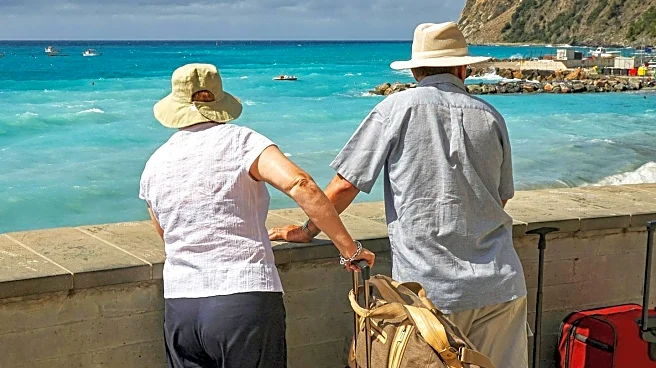What's Happening?
A recent study conducted by ABTA - The Travel Association, highlights the challenges British tourists face with tipping customs in foreign countries. The survey, carried out by YouGov, reveals that 46% of UK adults are not confident about tipping practices when traveling outside the UK. This uncertainty is particularly pronounced in destinations such as the UAE, Japan, and the USA. In the UAE, 64% of respondents feel unsure about tipping, despite common expectations of a 10-15% gratuity in service areas. Japan presents a unique case where tipping is often seen as impolite, contributing to 57% of British tourists feeling uncertain. Meanwhile, in the USA, where tipping is nearly mandatory at 15-20%, 40% of travelers express confusion over the correct amounts.
Why It's Important?
The study underscores the cultural differences in tipping practices that can lead to anxiety and confusion among British travelers. Understanding these customs is crucial for smooth interactions with service providers abroad and can impact the overall travel experience. The findings suggest a need for better education and preparation for travelers to avoid awkward situations and ensure respectful engagement with local customs. This is particularly important in popular tourist destinations where service industry workers rely heavily on tips as part of their income.
What's Next?
ABTA offers several tips for travelers to combat tipping anxiety, including researching local customs before traveling, checking if the service charge is included in the bill, keeping local currency on hand for tips, and consulting with travel agents, hotel staff, or local guides when unsure. These steps aim to prepare travelers better and reduce uncertainty, potentially leading to more enjoyable and culturally respectful travel experiences.
Beyond the Headlines
The issue of tipping anxiety among British tourists highlights broader cultural differences and the importance of understanding and respecting local customs. It also raises questions about the role of travel associations and agencies in educating travelers about these nuances. As international travel becomes more accessible, such cultural education could become a standard part of travel planning, promoting more harmonious global interactions.









